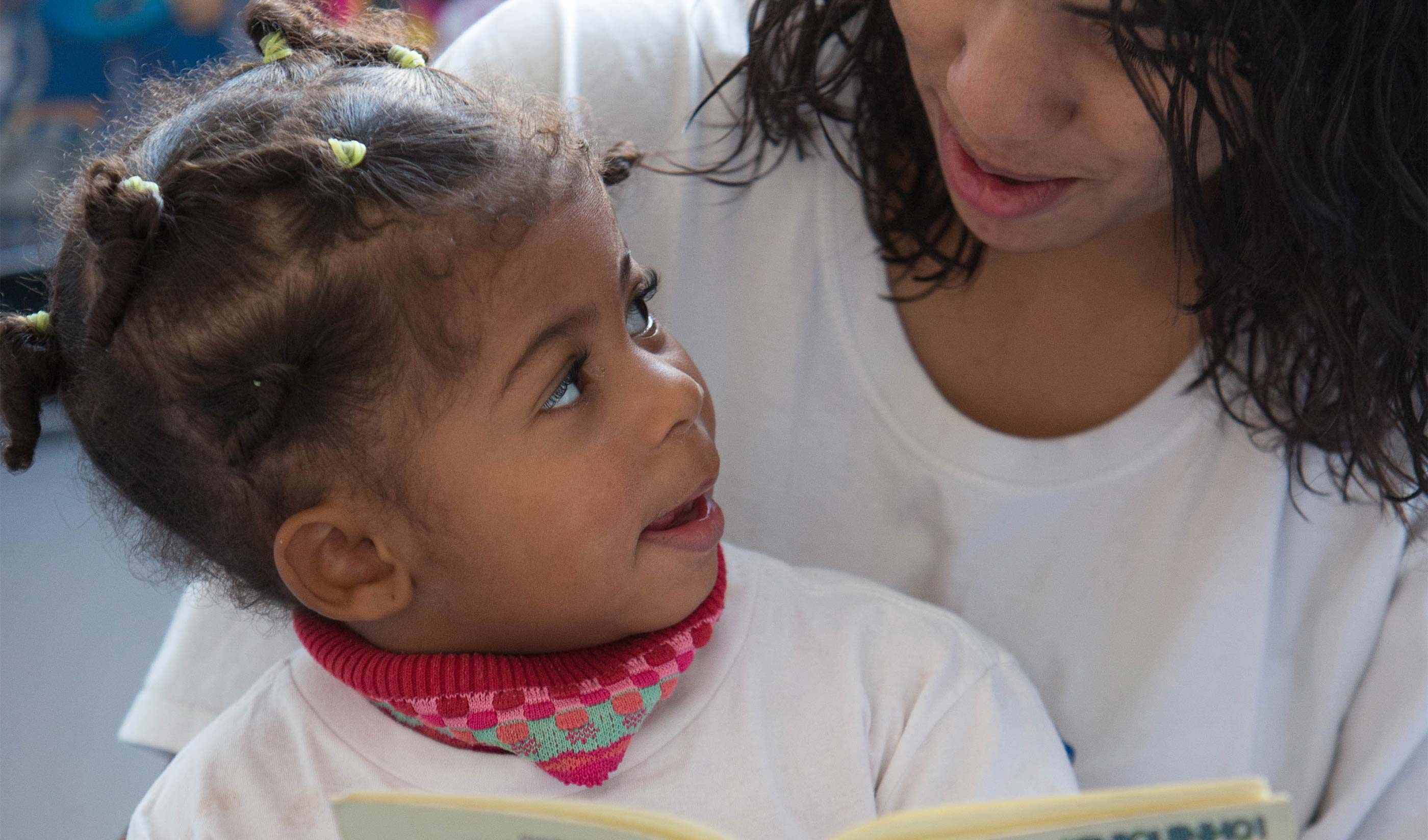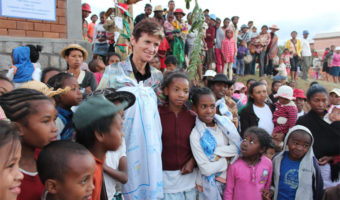Across the various sectors that make up the early childhood development field
– health, nutrition, education, psychosocial development, water and sanitation, child protection and beyond – there are many structural factors that impact the lives of young children and their caregivers: issues such as infrastructure, policies and laws, service availability and appropriate technology. However, one of the factors with the greatest impact is human behaviour – specifically the behaviour of young children’s caregivers and family members, service providers and community members. Across all of the sectors above, positive behaviours can put children on a path to healthy, productive development, while suboptimal behaviours can have serious ramifications.
Early childhood programmes often seek to influence or enhance behaviours to give children a better start in life. Behaviours promoted range from use of antenatal care to positive parenting practices, to improved nutrition, hygiene and exercise. Some programmes also seek to enhance the effectiveness of service providers, or address staff behaviours or practices which may discriminate against or otherwise create barriers for marginalised populations. Many focus on provision of information, based on the assumption that increasing awareness or knowledge of a topic will lead to changes in behaviour. This information is provided through a variety of channels including posters, pamphlets, books, television and radio spots, social media and interpersonal communications.
Unfortunately, lived experience and rigorous research have long indicated that human beings are not purely rational and that information alone is rarely sufficient to drive sustained behaviour change. To illustrate, many of us know doctors or nurses who smoke; people continue to use mobiles while driving, despite knowing the dangers; and we all know someone who has tried to diet or exercise regularly but who has failed to keep it up. None of these seemingly irrational behaviours is driven primarily by insufficient information on risks or benefits.
In response, different behaviour change methodologies have evolved to support the adoption of better behaviours. All start with the premise that humans are predictably irrational, and that empirical methods can allow us to identify and address the myriad non-rational barriers to improved behaviour. The following typology can help distinguish between four complementary and sometimes overlapping schools of behavioural science:
- Social and behaviour change communications (SBCC). Informed by communications science and marketing, a wide range of theories and models exist and are most commonly employed in the public health sector. These typically aim to influence knowledge, attitudes and social norms via rigorously tested and validated motivational messages transmitted through a variety of mutually reinforcing media channels.
- Participatory methodologies. These models posit that those whose behaviours should change must be aware, proactive agents in the change process, not merely passive communications Examples ofparticipatory approaches include Participatory Action Research (PAR) and Positive Deviance (PD). All harness the power of collective action and social norms to drive change at individual, family and community levels.
- Design methods emerged from architecture, urban planning and industrial design. These were originally based on the observation that the physical layout and characteristics of spaces and objects influence users’ behavioural patterns. In more recent years, ‘human-centred design’ (HCD) has expanded to include elements of SBCC and participatory methods.
- Behavioural economics is a more recent discipline emerging from psychology and economics. Popularised by Thaler (2009) and Kahneman (2013) among others, it focuses on universal cognitive biases that shape human reasoning. Behavioural economists apply tools such as default options, reminders and other nudges to overcome or exploit cognitive biases to promote better behaviours.
In early 2018, the Bernard van Leer Foundation commissioned an assessment of the use of these different methods by its grantees and partners around the globe. The review, which included a document review and interviews, found that several partners were already using some of the methods described above. However, a number of essential practices – including analyses of behavioural barriers; demographic and psychographic segmentation; pre-testing of messages and interventions; and monitoring and evaluation of behaviour change interventions – were not systematically practised by the majority of the Foundation’s partners.
Almost none employed more than one of the methods above, and many continued to invest major resources into providing information on ‘good’ and ‘bad’ behaviours. While there was strong anecdotal evidence for the positive behavioural effects of many of these programmes, they were largely unable to provide evidence-based answers about whose behaviour was changing (or not), why, and how activities or messages could be improved to deliver an even stronger and more sustainable behavioural impact.
The Foundation has now launched an initiative to build partners’ capacity to better integrate behavioural science in their work. In partnership with Johns Hopkins University’s Center for Communication Programs (CCP) and the Busara Center for Behavioural Economics, the Foundation organised workshops in autumn 2018 in Istanbul and Lima to explore the potential for behavioural methods to enhance partner impacts. Based on those discussions, in 2019 Busara and CCP will support the integration of behavioural science in a number of ongoing partner initiatives including but not limited to:
- improved pre- and postnatal healthcare practices among vulnerable populations in the Netherlands
- work with Urban95 partners in Peru, Colombia, and Israel to address behavioural barriers including violence, solid waste, and other issues that limit the use of public spaces by caregivers and children under 5
- promotion of positive nutrition and parenting practices in government- and non-governmental-led health and parenting education programmes in Côte d’Ivoire and Israel
- increasing the use of paternity leave and building positive fatherhood behaviours during that period with partners in the Netherlands and Brazil
- enhancing the effectiveness of behaviour change efforts in home visiting programmes in Peru and Brazil.
Across all programmes, strong emphasis will be placed on monitoring and evaluation to determine the effectiveness of these interventions, with initial results anticipated in the next 9–12 months. The initiative will invest in building partner capacity to reduce the need for external technical assistance in the medium term. Finally the Foundation will continue to explore how to expand these efforts with a greater number of grantees, partners, donors and initiatives in the early childhood development field.
References can be found in the PDF version of the article.



